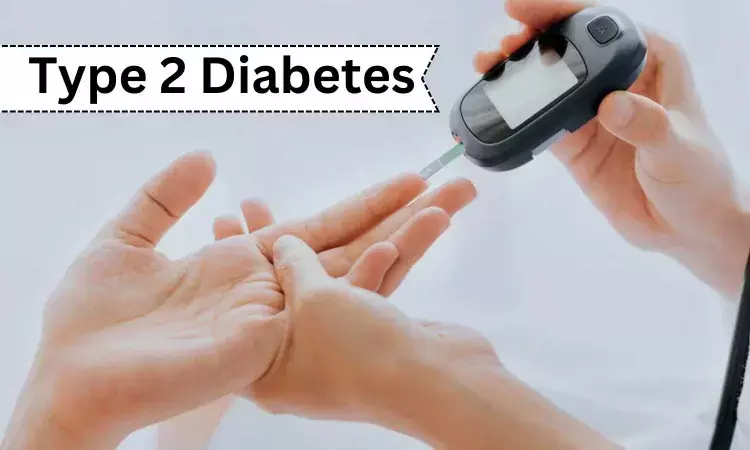- Home
- Medical news & Guidelines
- Anesthesiology
- Cardiology and CTVS
- Critical Care
- Dentistry
- Dermatology
- Diabetes and Endocrinology
- ENT
- Gastroenterology
- Medicine
- Nephrology
- Neurology
- Obstretics-Gynaecology
- Oncology
- Ophthalmology
- Orthopaedics
- Pediatrics-Neonatology
- Psychiatry
- Pulmonology
- Radiology
- Surgery
- Urology
- Laboratory Medicine
- Diet
- Nursing
- Paramedical
- Physiotherapy
- Health news
- Fact Check
- Bone Health Fact Check
- Brain Health Fact Check
- Cancer Related Fact Check
- Child Care Fact Check
- Dental and oral health fact check
- Diabetes and metabolic health fact check
- Diet and Nutrition Fact Check
- Eye and ENT Care Fact Check
- Fitness fact check
- Gut health fact check
- Heart health fact check
- Kidney health fact check
- Medical education fact check
- Men's health fact check
- Respiratory fact check
- Skin and hair care fact check
- Vaccine and Immunization fact check
- Women's health fact check
- AYUSH
- State News
- Andaman and Nicobar Islands
- Andhra Pradesh
- Arunachal Pradesh
- Assam
- Bihar
- Chandigarh
- Chattisgarh
- Dadra and Nagar Haveli
- Daman and Diu
- Delhi
- Goa
- Gujarat
- Haryana
- Himachal Pradesh
- Jammu & Kashmir
- Jharkhand
- Karnataka
- Kerala
- Ladakh
- Lakshadweep
- Madhya Pradesh
- Maharashtra
- Manipur
- Meghalaya
- Mizoram
- Nagaland
- Odisha
- Puducherry
- Punjab
- Rajasthan
- Sikkim
- Tamil Nadu
- Telangana
- Tripura
- Uttar Pradesh
- Uttrakhand
- West Bengal
- Medical Education
- Industry
Estimated glucose disposal rate may predict Renal Decline in T2DM Patients

A research study by Dr Juan Peng and colleagues has concluded that type 2 diabetes mellitus (T2DM patients) with estimated glucose disposal rate or eGDR <6.34 mg/kg/min had a high risk of rapid eGFR decline, eGFR<60 mL/min/1.73m2 or the composite renal outcomes. Compared to eGDR 5.65∼6.91 mg/kg/min, eGDR >8.33 mg/kg/min decreased the risk of rapid eGFR decline by 75%, eGFR<60 mL/min/1.73m2 by 60%, and the composite renal outcome by 61%, they mentioned.
Insulin resistance is a feature of T2DM The eGDR is a validated marker for insulin resistance. It is tied to diabetic complications. Data on the relationship between eGDR and renal outcomes in T2DM patients is scarce.
In the present study, researchers investigated the value of eGDR in predicting renal progression in T2DM. This study is published in Journal of the Endocrine Society.
The study could be summarised as follows:
- Researchers enrolled 956 T2DM patients.
- These patients had baseline eGFR of ≥60 mL/min/1.73m2 and a 5-year follow-up.
- Rapid eGFR decline, eGFR <60 mL/min/1.73m2, and composite renal endpoint consisting of 50% eGFR decline, doubling of serum creatinine, or end-stage renal disease were the primary outcomes measured.
- eGFR decline was experienced by 23.95% of patients.
- 21.97% had eGFR <60 mL/min/1.73m2.
- There were 12.13% of patients with the composite renal endpoint.
- eGDR presented a relationship with follow-up eGFR and a per cent change in eGFR.
- eGDR <6.34 mg/kg/min was an independent risk factor for rapid eGFR decline, eGFR<60 mL/min/1.73m2or the composite renal endpoint.
- Compared with eGDR of 5.65∼6.91 mg/kg/min, eGDR levels >8.33 mg/kg/min decreased the risk of rapid eGFR decline by 75%, eGFR<60 mL/min/1.73m2 by 60%, and the composite renal endpoint by 61%.
- eGDR was associated with primary outcomes as shown in Subgroup analysis performed by sex, age, and diabetes duration
They said, “Lower eGDR is a predictive factor for renal deterioration in T2DM patients.”
Further reading:
https://academic.oup.com/jes/advance-article/doi/10.1210/jendso/bvad069/7188163
BDS, MDS in Periodontics and Implantology
Dr. Aditi Yadav is a BDS, MDS in Periodontics and Implantology. She has a clinical experience of 5 years as a laser dental surgeon. She also has a Diploma in clinical research and pharmacovigilance and is a Certified data scientist. She is currently working as a content developer in e-health services. Dr. Yadav has a keen interest in Medical Journalism and is actively involved in Medical Research writing.
Dr Kamal Kant Kohli-MBBS, DTCD- a chest specialist with more than 30 years of practice and a flair for writing clinical articles, Dr Kamal Kant Kohli joined Medical Dialogues as a Chief Editor of Medical News. Besides writing articles, as an editor, he proofreads and verifies all the medical content published on Medical Dialogues including those coming from journals, studies,medical conferences,guidelines etc. Email: drkohli@medicaldialogues.in. Contact no. 011-43720751


